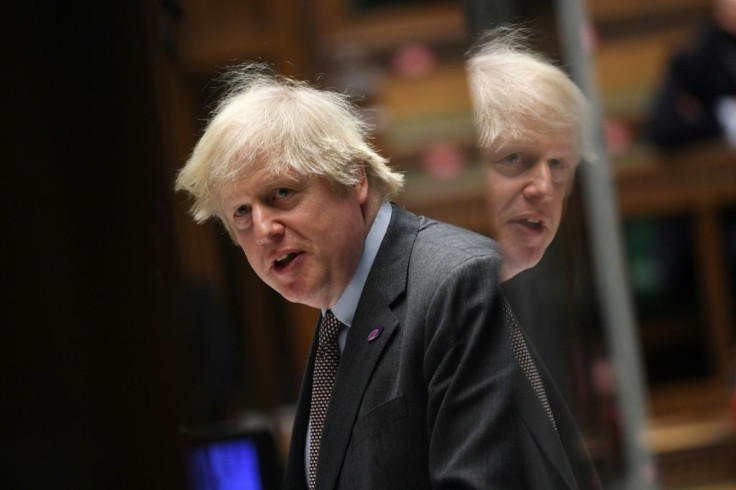UK PM Says 'Learn To Live With' Covid As Curbs To Be Lifted
Prime Minister Boris Johnson will on Monday unveil a plan to lift most if not all of England's pandemic restrictions from July 19, as he urged the public to "learn to live with" the coronavirus.
Johnson had initially aimed for a full reopening on June 21, but was forced to push back the date because of a surge in the highly contagious Delta variant.
That variant now accounts for nearly all new Covid-19 cases in Britain, and infection rates have soared -- but mass vaccinations have stopped a resultant surge in hospitalisations or deaths.
The prime minister is set to outline the planned easing for England at an afternoon news conference. The UK's other nations -- Scotland, Wales and Northern Ireland -- are moving at a slower pace.
"Thanks to the successful rollout of our vaccination programme, we are progressing cautiously through our roadmap," Johnson said, vowing to "restore people's freedoms".
"But I must stress that the pandemic is not over and that cases will continue to rise over the coming weeks," he added.
"As we begin to learn to live with this virus, we must all continue to carefully manage the risks from Covid and exercise judgment when going about our lives."
Care minister Helen Whately said 86 percent of British adults have had their first dose of a coronavirus vaccine, and 63 percent their second dose.
"So that's far more protection from Covid," she told Sky News.
But the government's emphasis on personal judgment was met with concern by scientists, who worry that hospitals and medics could yet be stretched anew if the Delta variant runs amok or new strains emerge.
The British Medical Association urged the government to maintain some restrictions owing to an "alarming" increase in the number of Covid cases, which are running at nearly 30,000 a day.
"Allowing community transmission to surge is like building new 'variant factories' at a very fast rate," said Susan Michie, a University of London psychology professor who specialises in behavioural science.

After Russia, Britain has the highest coronavirus death toll of any European country, at more than 128,000, but has been gradually transitioning out of its third lockdown imposed in January.
The remaining restrictions in England encompass requirements for social distancing including wearing masks indoors in public, bans on most outdoor large events, and guidance for people to work from home.
The government has already relaxed the ban on major events to allow 60,000 football fans to attend the semi-finals and final of the European Championship at London's Wembley stadium -- two-thirds of its capacity.
The first semi-final is Tuesday and the England team play in the second one on Wednesday -- although German Chancellor Angela Merkel last week told Johnson that he was risking too much by permitting so many fans.
The UK government is meanwhile expected later this week to set out plans for fully vaccinated Britons to travel to "amber" countries including most of Europe without having to quarantine for 10 days on their return.
But Germany and other countries in Europe show no sign of relaxing their own rules to allow in unrestricted numbers of British holidaymakers this summer.
So most Britons will have to remain content with vacationing at home, but will have the attraction of summer music festivals under Johnson's expected easing, details of which were widely trailed in media.
They can also anticipate an end to social distancing in pubs, the reopening of nightclubs, and the scrapping of a requirement to register their personal details every time they enter a pub or restaurant.
But businesses can still impose their own rules, and it remains to be seen whether operators of mass transit including Transport for London drop the wearing of masks on trains and buses.
Masks have been a key part of the pandemic response "keeping us safe and well", Nikki Kanani, a senior clinician in England's National Health Service, told Times Radio.
© Copyright AFP 2024. All rights reserved.





















